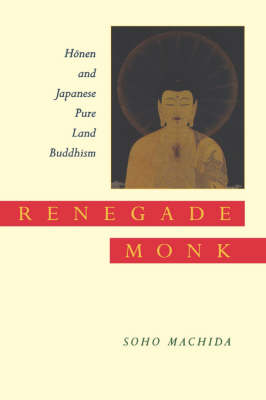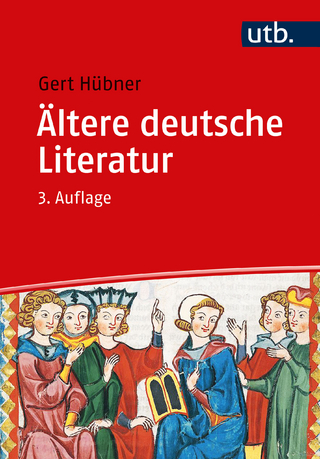
Renegade Monk
Honen and Japanese Pure Land Buddhism
Seiten
1999
University of California Press (Verlag)
978-0-520-21179-7 (ISBN)
University of California Press (Verlag)
978-0-520-21179-7 (ISBN)
- Lieferbar (Termin unbekannt)
- Versandkostenfrei innerhalb Deutschlands
- Auch auf Rechnung
- Verfügbarkeit in der Filiale vor Ort prüfen
- Artikel merken
The Pure Land sect of Japanese Buddhism is one of the strongest Buddhist sects in Japan, with three and a half million followers. In this book, the author provides a detailed, objective account in English of the life and thought of its founder, Honenbo Genku (1133-1212), known as Honen.
The Pure Land sect of Japanese Buddhism is one of the strongest Buddhist sects in Japan, with three and a half million followers. In this book, Soho Machida provides the first detailed, objective account in English of the life and thought of its founder, Honenbo Genku (1133-1212), known as Honen. Opening with the destruction and chaos that beleaguered Kyoto during Honen's lifetime, Soho Machida explores Honen's social context to discover the roots of his thought and the source of his popularity. The Old Buddhist regime had a stranglehold on peasants, he shows, by concocting images of vindictive spirits, hell, and an apocalyptic collapse of the law in these chaotic times. Machida asserts that when Honen countered such negative, menacing images by focusing his imagination on the Pure Land and actually affirming death, he became not only a radical thinker but also the leader of a revolutionary social movement - a medieval Japanese "liberation theology." Clearly argued and informed by contemporary Western theory, this book will become the definitive source on Honen's life and thought for decades to come.
The Pure Land sect of Japanese Buddhism is one of the strongest Buddhist sects in Japan, with three and a half million followers. In this book, Soho Machida provides the first detailed, objective account in English of the life and thought of its founder, Honenbo Genku (1133-1212), known as Honen. Opening with the destruction and chaos that beleaguered Kyoto during Honen's lifetime, Soho Machida explores Honen's social context to discover the roots of his thought and the source of his popularity. The Old Buddhist regime had a stranglehold on peasants, he shows, by concocting images of vindictive spirits, hell, and an apocalyptic collapse of the law in these chaotic times. Machida asserts that when Honen countered such negative, menacing images by focusing his imagination on the Pure Land and actually affirming death, he became not only a radical thinker but also the leader of a revolutionary social movement - a medieval Japanese "liberation theology." Clearly argued and informed by contemporary Western theory, this book will become the definitive source on Honen's life and thought for decades to come.
Soho Machida is Assistant Professor of Japanese Studies at National University. Ioannis Mentzas is a Ph.D. candidate in the Deptartment of English and Comparative Literature at Columbia University.
| Erscheint lt. Verlag | 1.4.1999 |
|---|---|
| Übersetzer | Ioannis Mentzas |
| Verlagsort | Berkerley |
| Sprache | englisch |
| Maße | 152 x 229 mm |
| Gewicht | 454 g |
| Themenwelt | Literatur ► Biografien / Erfahrungsberichte |
| Sachbuch/Ratgeber ► Geschichte / Politik | |
| Geschichte ► Allgemeine Geschichte ► Mittelalter | |
| Geisteswissenschaften ► Geschichte ► Regional- / Ländergeschichte | |
| Geisteswissenschaften ► Philosophie | |
| Geisteswissenschaften ► Religion / Theologie ► Buddhismus | |
| ISBN-10 | 0-520-21179-0 / 0520211790 |
| ISBN-13 | 978-0-520-21179-7 / 9780520211797 |
| Zustand | Neuware |
| Haben Sie eine Frage zum Produkt? |
Mehr entdecken
aus dem Bereich
aus dem Bereich
eine neue Geschichte des Mittelalters
Buch | Hardcover (2023)
C.H.Beck (Verlag)
38,00 €


